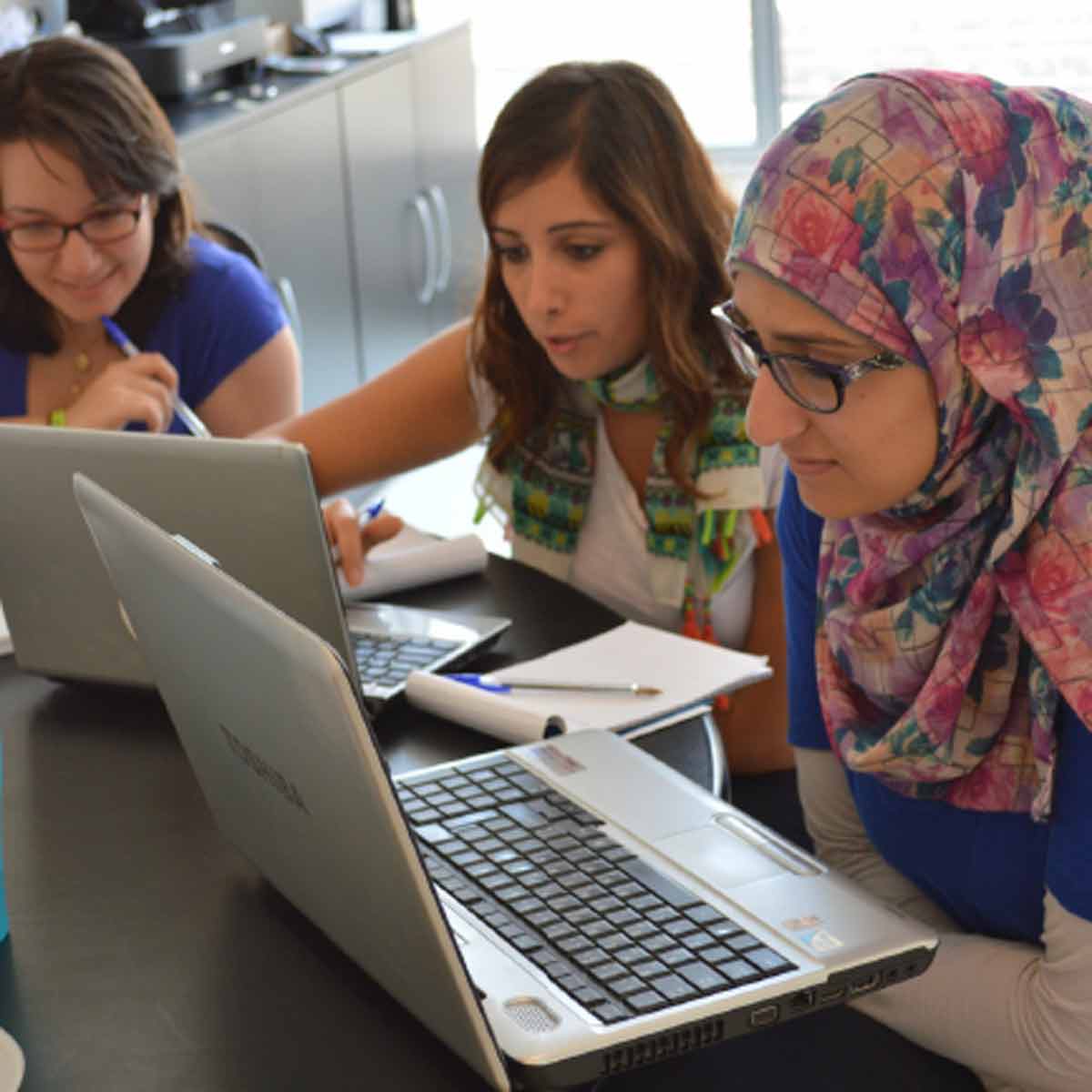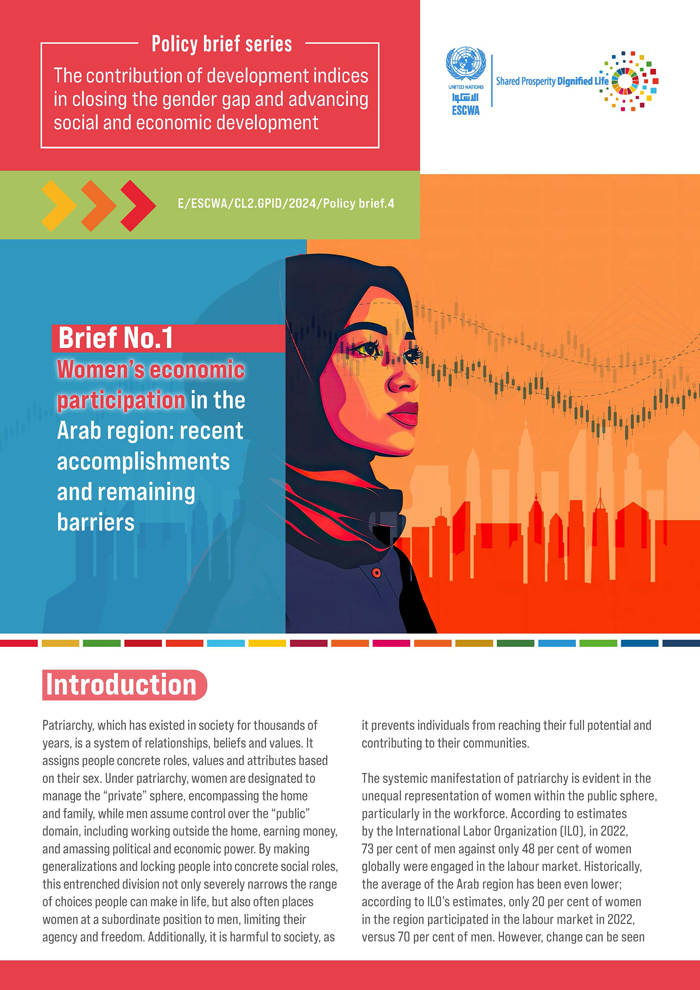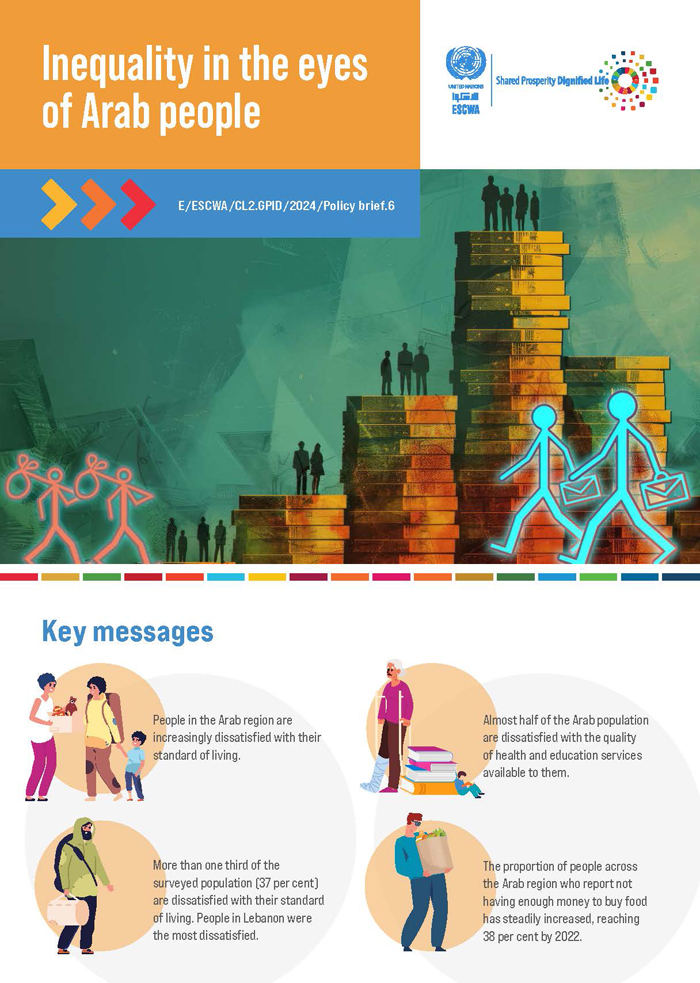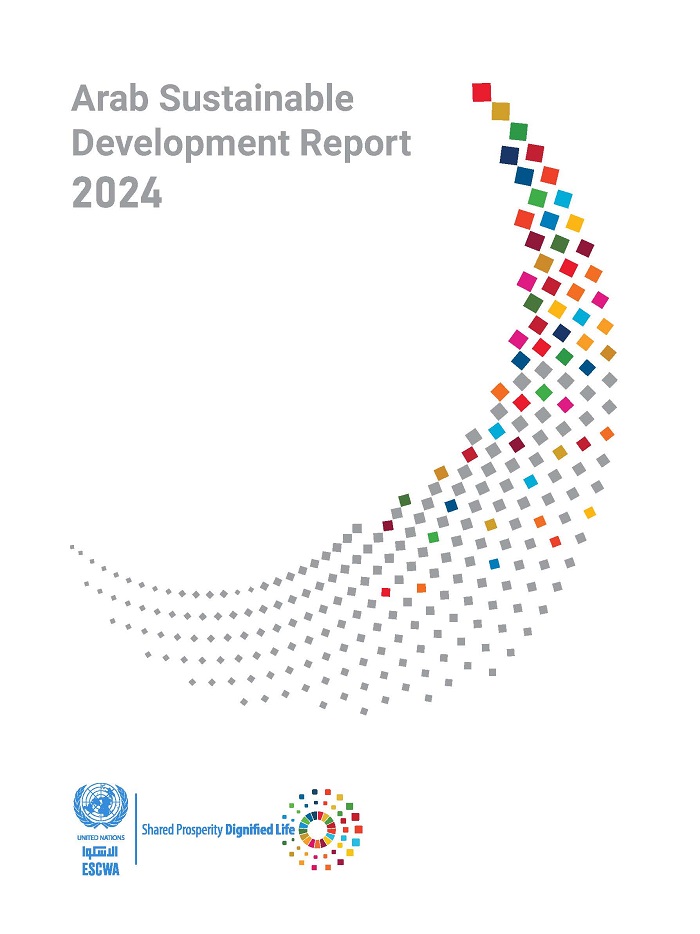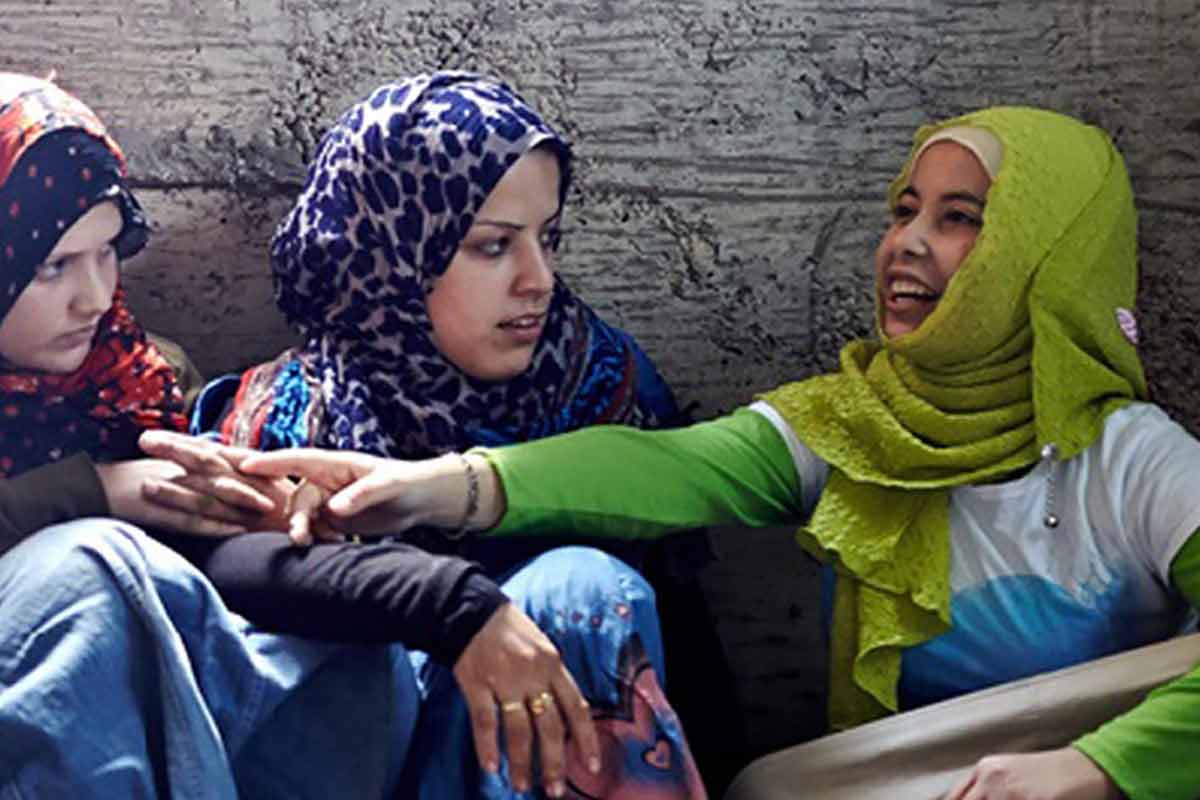
Background
Many practices that prevent women from achieving their full potential as active members in society have been codified in constitutions, labour laws, penal codes and personal status laws. A number of Arab countries have not adopted standalone laws or updated their legal systems to combat violence against women and girls and other harmful practices, such as female genital mutilation and child marriage.
In line with the Muscat Declaration, ESCWA supports its member States in achieving gender equality by establishing effective accountability mechanisms at the legislative and institutional levels, and in addressing all forms of discrimination against women and girls at the social, economic, civil and political levels.
Our approach
Our partners
Stakeholders: General public, policymakers, National women’s machineries, research and academic institutions, and civil society actors and organizations.
Partners: UNDP, UNFPA, UN-Women, CAWTAR
Our activities
ESCWA prepares studies and reports that assess laws and policies affecting the realization of gender equality and the protection of women from violence, highlight successful legal provisions, and identify gaps that countries need to address to meet their international obligations. It also holds regional consultations and workshops to discuss report findings and build the capacity of member States on using the tools and platforms developed by ESCWA, and aligning national legislation with international norms, including those outlined in CEDAW and the Beijing Declaration and Platform for Action.
ESCWA undertakes the following:
- Assesses existing national policies, laws and accountability mechanisms to determine whether they guarantee gender equality and access to justice for women and girls and protect them from discrimination and violence, and to identify possible gaps that countries need to address to meet their international commitments;
- Monitors progress and highlights significant legislative, political, civil, economic and social changes in the region;
- Provides member States with tools and platforms to access data on the status of laws, measure progress on achieving equality in laws, and exchange experiences;
- Supports member States in their efforts to align national legislation with international frameworks, most notably the Convention on the Elimination of all Forms of Discrimination against Women (CEDAW), the Beijing Platform of Action and SDG target 5.1.
